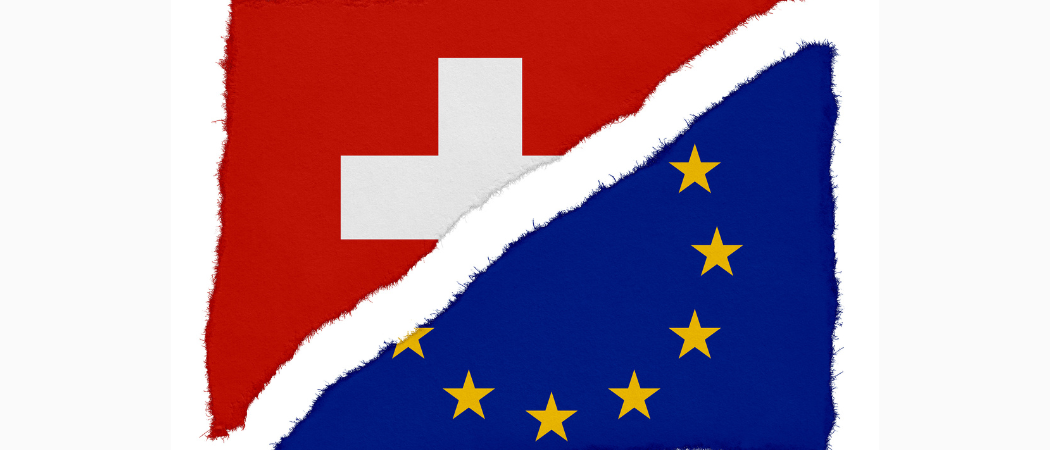Research commissioner Mariya Gabriel has linked re-admittance to ESFRI to wider relations between the EU and Switzerland. Some see this as a sign the body is too heavily controlled by the Commission

European research leaders have reacted with shock and disappointment to Switzerland’s expulsion from the body that coordinates scientific infrastructure across the continent, but the Commission has blamed Bern, saying it needs to re-engage in wider level talks with the EU.
Last week, Swiss scientists revealed publicly that they had been booted out of the European Strategy Forum on Research Infrastructures (ESFRI), calling the decision “unreasonable”.
Switzerland, despite hosting one of the world’s largest scientific infrastructures, the European Organisation for Nuclear Research (CERN), was expelled last September because it is not associated to Horizon Europe, the EU’s research framework programme.
But questions have been asked over why a compromise, like ESFRI observer status for Switzerland or a change of rules to allow it to stay, has not yet been found. Some see the expulsion as a sign that ESFRI has been politicised, with the Commission linking membership to broader relations with the EU.
“I find this shocking and bad news for European science,” said Robert-Jan Smits, president of the Eindhoven University of Technology former director general of research and innovation at the Commission. “Holes are great for Emmentaler cheese but not for the European Research Area.”
ESFRI’s rules mean that only EU member states and countries associated to Horizon are allowed to join. Brussels and Bern have not even started negotiating association, because Switzerland broke off talks in 2021 that would have revamped its overall relationship with the EU.
Asked whether she believed Switzerland should be a member of ESFRI, researcher commissioner Mariya Gabriel stressed that Bern needs to re-engage in these broader talks.
“We are looking forward to renew Switzerland's participation and re-engage at all levels as soon as possible, to allow for closer cooperation,” she said in a statement.
Jana Kolar, ESFRI’s chair, acknowledged that research and innovation cooperation between the EU and Switzerland was part of “international relations” and so any return of Switzerland to ESFRI, even as an observer, “depends on the outcome of political decisions on the highest levels”.
However, “it might be argued that the policy domain of research infrastructures is a special case,” she said.
Gabriel left open the possibility that rules might change to allow Switzerland back in. ESFRI is currently having “a general reflection on its cooperation with third countries,” she said. The outcome, which could include changes to the rules that exclude the Swiss, is expected this year.
Last December, EU science ministers welcomed these discussions, although they did not go any further in publicly pressuring the Commission to re-admit Switzerland.
But any rule change to allow Switzerland back into ESFRI “also needs to take into consideration the exploratory talks on the future of our relationship,” Gabriel said, referring to the wider EU-Swiss negotiations.
As for observer status, Gabriel noted ESFRI is allowed to seek outside opinions, “thus the participation of experts from Switzerland is not excluded.”
Absurd
John Wood, a former ESFRI chair, said the decision to expel Switzerland was “absurd” and seemed almost “spiteful”.
With the UK also excluded because it too is not associated to Horizon Europe, ESFRI could no longer claim to represent European research infrastructure.
“Who is going to speak for Europe?” he said. “You’ve got two major science countries in Europe that are not included in the discussion. They could have observer status,” he said.
Set up in 2002, and releasing periodic roadmaps planning European scientific infrastructure, ESFRI was formed to replace an opaque system whereby the EU’s biggest science powers decided on infrastructure needs behind closed doors.
Wood sees the expulsion of Switzerland as a sign ESFRI has descended from a free organisation of member states to a body too in hock to the Commission.
“They should decide, not the politicians,” he said. ESFRI is now “making judgements on things, rather than being an open forum for discussion.”
Wood predicted that with Switzerland out of ESFRI, discussions over the future of research infrastructure in Europe would increasingly happen outside the body, in bilateral talks instead. “I think ESFRI has done a great job, but I do wonder where it is going,” he said.
Kolar said ESFRI would look for ways to continue working with Switzerland but admitted its work would take a hit. “ESFRI’s ability to fully deliver on its mission may be impaired if third countries like Switzerland are excluded from its work,” she said.
A spokeswoman for CERN said the expulsion would have no effect on the organisation. “The ESFRI membership does not correspond to the CERN membership, and there is good interaction regardless,” she said.





 A unique international forum for public research organisations and companies to connect their external engagement with strategic interests around their R&D system.
A unique international forum for public research organisations and companies to connect their external engagement with strategic interests around their R&D system.